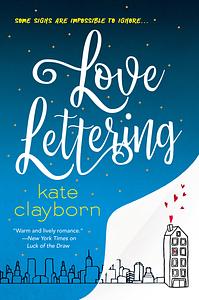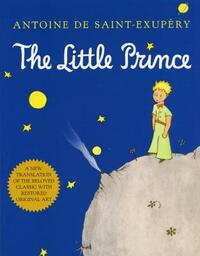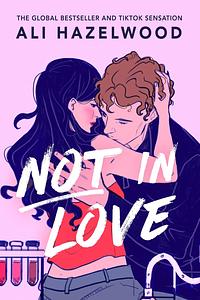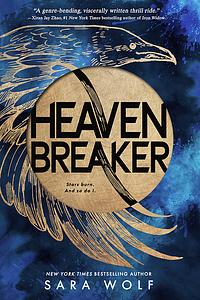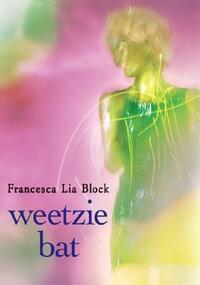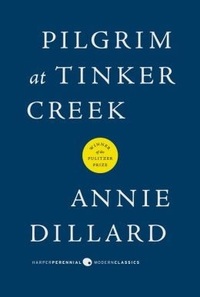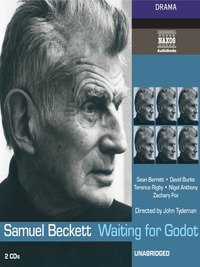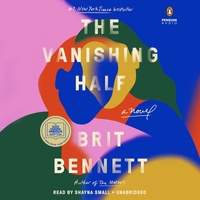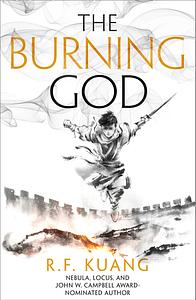Take a photo of a barcode or cover
documentno_is's Reviews (1.28k)
adventurous
challenging
dark
inspiring
lighthearted
reflective
sad
fast-paced
Plot or Character Driven:
A mix
Strong character development:
Complicated
Loveable characters:
Yes
Diverse cast of characters:
No
Flaws of characters a main focus:
Complicated
When I was in South Korea, I saw The Little Prince everywhere. From merch to street art, he was very much a part of the cultural jargon so I was intrigued enough to seek out the story. I had never heard of it as a child and don’t think it’s mentioned as often in the US but maybe that’s a personal blind spot.
More poignant than I expected from a ww2 era children’s book, certainly had interesting anti capitalist and anti-colonial leanings (despite having the casual racism of its time- hence the less than perfect review.) Still, I appreciate a children’s book that treats children with dignity and intelligence. The ultimate thematic messaging of friendship and love through time spent and care is important and beautiful.
More poignant than I expected from a ww2 era children’s book, certainly had interesting anti capitalist and anti-colonial leanings (despite having the casual racism of its time- hence the less than perfect review.) Still, I appreciate a children’s book that treats children with dignity and intelligence. The ultimate thematic messaging of friendship and love through time spent and care is important and beautiful.
adventurous
lighthearted
reflective
fast-paced
Plot or Character Driven:
Character
Strong character development:
Yes
Loveable characters:
Complicated
Diverse cast of characters:
No
Flaws of characters a main focus:
Yes
adventurous
challenging
dark
sad
tense
fast-paced
Plot or Character Driven:
A mix
Strong character development:
Yes
Loveable characters:
Yes
Diverse cast of characters:
No
Flaws of characters a main focus:
Complicated
Really interesting world building, hope the author has more in store because it's an unfinished story as is. It was interesting to read a mecha/sci-fi novel set in a clearly western context.
challenging
emotional
lighthearted
fast-paced
Plot or Character Driven:
A mix
Strong character development:
Complicated
Loveable characters:
Complicated
Diverse cast of characters:
No
Flaws of characters a main focus:
No
The Good
The narration style of this novel was really interesting- the world the author created was equal parts grounded in reality and separate from it. I love that it was essentially a love letter to L.A. and lamenting its further gentrification. The punk ethos and references were cool as well as the progressive approach to a blended family. I love the questioning of what love means and what family has to be or look like.
The Bad
You know in Broad City when Abby says to Illana you’re so anti-racist that you actually are really racist? There is a lot of that. Its appropriation without understanding comes off as grating and its hard to look past. I'm almost glad I didn't read this when I was younger I feel it might've gone over my head.
I’m also unsure of the audience for this novella- the drugs and explicit sex elements give it an aura of being too advanced for anybody under the age of 14 or so but then it’s written in a childlike whimsy with very little conceptual breadth. The plot is a jumbled mess and has no real climax as there is still half a novel left when the most impactful part occurs.
The End
This is the oldest book I had in my to-read pile, I think I might’ve added it in middle school so it’s pretty fun to be able to finally read it. I’m not entirely sure I needed to read it but it’s such a low commitment I can hardly say my time was wasted.
adventurous
challenging
dark
funny
hopeful
informative
inspiring
reflective
slow-paced
It is rare to read a book so beautiful and so funny and yet still somehow so inexplicably boring that I fought myself every day to not put it down.
Pilgrim at Tinker Creek is a book about experiencing, but in examining nature and creation it is also a book about everything. The meaning can be found in the title, Dillard journeys from the land of thought and humanity to that of nature and spends the next 300 pages or so riffing upon what she finds there. I love Dillard’s prose- sparing when it needs to be yet blissfully descriptive. Musings about the origin and goings on of nature and wild things in a beauty that reminds me of Walden with more tact and less ego (but I do think there is still a lot of ego.) Many of the religious reference are lost on me- if not occasionally abrasive in their presentation. For a book that in its conclusion asks the reader not to spend too much time analyzing it references so often I practically had to delve into Christianity and Islam to understand it. Dillard also takes certain things as fact that I would prefer stay in supposition. “God is subtle, but not malicious” is a laughably inaccurate taking in of reality in my eyes. Still, her ability to find beauty in the extravagance of the natural world warms me to her ideas even when she bothers me with her larger conjectures. I think my main issue with the text is the presupposition that any of these observations require rejecting the city when many of these same observations can take real growth in the city.
I, like the bear, see more of the same. Dillard interweaves humor and interest in what I find a rather dull topic- nature writing. She has a sarcastic and goofy tone that often makes me smile in earnest. Dillard insists she’s no scientist, and only in the game of observation. This sits in contrast to her very observational and scientific stance on observing itself- dealing in comparing the quantifiable amount of light illuminating earth in comparison to animals’ greater range of vision. I found myself often laughing out loud at her descriptions- “ticks are almost as widely distributed as lice, but much more catholic in their choice of hosts” shook me to my core it was so funny.
https://open.substack.com/pub/isabellasevidenceofliving/p/pilgrim-at-tinker-creek?r=18sjwc&utm_campaign=post&utm_medium=web&showWelcomeOnShare=true
https://open.substack.com/pub/isabellasevidenceofliving/p/pilgrim-at-tinker-creek?r=18sjwc&utm_campaign=post&utm_medium=web&showWelcomeOnShare=true
dark
emotional
reflective
sad
fast-paced
Plot or Character Driven:
A mix
Strong character development:
No
Loveable characters:
Complicated
Diverse cast of characters:
No
Flaws of characters a main focus:
No
I’m interested to see it as a play, as I can’t exactly imagine what visuals add to this- aside from the comedic elements? I normally find absurdist comedy to be the least enjoyable but this was fine.
challenging
emotional
reflective
sad
medium-paced
Plot or Character Driven:
A mix
Strong character development:
Complicated
Loveable characters:
Yes
Diverse cast of characters:
Yes
Flaws of characters a main focus:
Yes
There are a lot of interesting themes touched on within this book, but I can't help but feel the novel did itself a disservice by trying to cover so much. Certain topics felt grazed but never fully delved into and I can't help but feel it did a better job talking about race than about being trans and it almost avoided the intersection altogether.
From a novel/story perspective i felt all the characters were well written, everyone had their own story and motivations and Bennett spent enough time with each character to have them all feel fleshed out without only having one main. Some characters were obviously more sympathetic than others but I felt Bennett did a good job spotlighting the characters that were less easy to empathize with and spent time explaining their motivations.I felt like Reese could have been focused on more, and was sort of eclipsed as a side character for Jude's growth and life.
I really liked how Bennett interwove the thematic element of lying and performance into this story about "passing" and how even the characters who were not so explicitly misinterpreting who they were put on faces for each other in different ways. In the way that I felt Bennett accurately conveyed different emotions and motivations of characters and the complexity of their stories I also feel Bennett somewhat failed to take a side or really make any thematic statement with this novel which leaves the reader wondering what to make of it all. Stella's choices obviously harmed all those around her, but we are ultimately left in the same place we began with her story? She is somewhat content to live in her choices.
I liked this book, it handled themes in interesting ways and had a really solid story to back up the topics it clearly wanted to touch on. Still I didn't find it to be such an interesting perspective on this topic that I felt too changed or moved. I think the novel's introductory approach held it back from its potential.
From a novel/story perspective i felt all the characters were well written, everyone had their own story and motivations and Bennett spent enough time with each character to have them all feel fleshed out without only having one main. Some characters were obviously more sympathetic than others but I felt Bennett did a good job spotlighting the characters that were less easy to empathize with and spent time explaining their motivations.
I really liked how Bennett interwove the thematic element of lying and performance into this story about "passing" and how even the characters who were not so explicitly misinterpreting who they were put on faces for each other in different ways. In the way that I felt Bennett accurately conveyed different emotions and motivations of characters and the complexity of their stories I also feel Bennett somewhat failed to take a side or really make any thematic statement with this novel which leaves the reader wondering what to make of it all. Stella's choices obviously harmed all those around her, but we are ultimately left in the same place we began with her story? She is somewhat content to live in her choices.
I liked this book, it handled themes in interesting ways and had a really solid story to back up the topics it clearly wanted to touch on. Still I didn't find it to be such an interesting perspective on this topic that I felt too changed or moved. I think the novel's introductory approach held it back from its potential.
adventurous
inspiring
reflective
sad
tense
fast-paced
Plot or Character Driven:
Plot
I thought this was a really effective conclusion for the series, and drove home the themes more than book 2. Rin was a complex and interesting anti-hero and this story really flourished the aspects of her paranoia and power hungriness. The dynamics with Kitay Nezha also came to a really compelling conclusion, and its in their love and pain that I found the most poignance within this series. My main criticisms of this book lie in my criticisms of the last one: far to explicit and pedantic battle descriptions explored in favor of more explorations in characters and motivations. I don't really care to what detail you found the ability to make new bullets out of certain materials etc. I'm glad I finished this series but it was pretty difficult to get through what felt like a lot of filler to get to the conclusion.
challenging
funny
reflective
fast-paced
Plot or Character Driven:
A mix
Strong character development:
No
Loveable characters:
No
Diverse cast of characters:
No
Flaws of characters a main focus:
Yes
Beauty corrupted by society. An impressionable young man is corrupted by his peers but also ultimately responsible for the choices he makes. It’s a novel about the dangers of influence, of being a sponge who takes in ideals without criticism. A life of vanity and hedonism corrupts the soul, numbness and distraction from the pains of reality turns you cold, callous, and corrupt.
It’s funny how often this is on book ban lists for description of hedonism when this book is essentially a parable for what happens if you don’t prescribe to a very Christian western morality. Its explorations of unchecked desire, icons, and wealth hoarding are pretty explicit and in a lot of ways it reminded me of A Christmas Carol with a more interesting frame narrative. There is the further exploration of vanity and beauty in regard to art, it seems to me Wilde would not advocate for separating art from the intentions of the author and I tend to agree with him.
I really like the descriptions of Dorian with his fair hair and Scarlett lips, it’s very theatrical and campy. Harry was cartoonishly evil in a very satisfying way “ women are a decorative sex, “ Jesus Christ. Loved the homoerotic undertones, could lose the general racism of the 1800s but the novel is decidedly modern for the time of its writing. I also liked the descriptions of the more horrific elements, the picture itself and its slow descent into disfigurement as Dorian became more corrupted was told in lingering suspense and drama, in a really poignant way.
Wilde's philosophies/ beliefs are pretty limiting and I can't say I'm totally sold on his view of the world but it was an interesting read on political and social discourse of his time.
Wilde's philosophies/ beliefs are pretty limiting and I can't say I'm totally sold on his view of the world but it was an interesting read on political and social discourse of his time.
